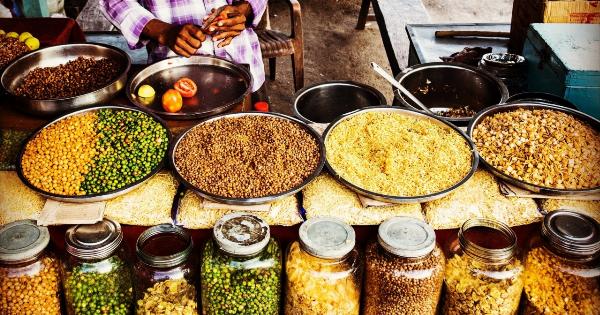Beans have long been a staple in diets around the world for their versatility, affordability, and nutritional value. They are rich in fiber, protein, and various vitamins and minerals.
However, for some individuals, consuming beans can lead to unpleasant digestive symptoms such as bloating, gas, and discomfort. This article explores the relationship between beans and gut health and highlights who should exercise caution when incorporating beans into their diet.
The Benefits of Beans
Before delving into potential concerns, it is essential to recognize the numerous benefits of including beans in your diet. Beans are an excellent source of dietary fiber, which plays a crucial role in maintaining a healthy digestive system.
Fiber aids in regulating bowel movements, preventing constipation, and promoting overall gut health. Furthermore, the fiber content in beans contributes to feelings of satiety, making them a helpful component in weight management and achieving a balanced diet.
Moreover, beans are a fantastic plant-based protein source, making them particularly valuable for individuals following vegetarian or vegan diets. They contain essential amino acids necessary for the body’s growth, repair, and maintenance.
Additionally, beans are an abundant source of vitamins and minerals, including folate, iron, magnesium, and potassium. These nutrients are vital for various bodily functions, such as the production of red blood cells and the support of a healthy immune system.
Beans and Digestive Concerns
While the fiber content in beans provides many benefits, it can also be the source of digestive discomfort in some individuals.
The primary reason behind this is the presence of certain sugars and complex carbohydrates known as oligosaccharides, which are not easily broken down in the small intestine.
These oligosaccharides, including raffinose and stachyose, pass undigested into the large intestine, where they are fermented by the gut bacteria.
This natural fermentation process produces gases such as hydrogen, methane, and carbon dioxide, leading to bloating, gas, and flatulence. The severity of these symptoms can vary from person to person, with some individuals experiencing minimal discomfort while others may find it more distressing.
FODMAPs and Beans
In recent years, there has been increasing interest in a dietary approach known as the low FODMAP diet.
FODMAPs, an acronym for Fermentable Oligosaccharides, Disaccharides, Monosaccharides, and Polyols, are a group of carbohydrates that can contribute to digestive symptoms in susceptible individuals, particularly those with irritable bowel syndrome (IBS).
Beans, along with other legumes, contain FODMAPs such as fructans. Fructans are a type of oligosaccharide that are considered high FODMAP and can trigger symptoms like bloating, gas, and abdominal pain in people with a sensitive gut.
It is important to note that not everyone with IBS or digestive concerns will have difficulty tolerating FODMAPs. However, for those who do, following a low FODMAP diet under the guidance of a healthcare professional or registered dietitian can help identify trigger foods and manage symptoms effectively.
Managing Beans and Gut Health
While beans can pose challenges for some individuals, there are several strategies that can help mitigate digestive discomfort:.
1. Gradual Introduction
If you are new to consuming beans or have had previous digestive issues, consider introducing them gradually into your diet. Begin with smaller portions and listen to your body’s response.
Slowly increase the amount over time as your gut adapts to the increased fiber content.
2. Soaking and Cooking
Soaking beans before cooking them can help reduce their oligosaccharide content, potentially making them easier to digest.
Additionally, thoroughly cooking beans can further break down these complex carbohydrates, aiding in their digestion and reducing the likelihood of experiencing discomfort.
3. Smaller Servings
Instead of consuming a large serving of beans all at once, consider spreading your intake throughout the day. This approach allows your body to manage the fiber intake more efficiently, minimizing the likelihood of experiencing digestive symptoms.
4. Prebiotic Supplements
For individuals who struggle with digesting beans or FODMAPs, prebiotic supplements may be a viable alternative. Prebiotics are non-digestible fibers that nourish the beneficial bacteria in the gut.
These supplements typically contain specific types of prebiotic fibers that are easier to tolerate and can help support gut health.
5. Experiment with Different Bean Varieties
Not all beans are equal in terms of their oligosaccharide content. Some varieties, such as lentils and black beans, are generally better tolerated than others, like chickpeas or kidney beans.
Experiment with different types to identify which ones work best for your digestion.
6. Be Mindful of Portions
Portion control is key when it comes to managing digestive symptoms related to bean consumption. Moderating your serving sizes can help prevent excessive fermentation in the gut and reduce discomfort.
7. Seek Professional Guidance
If you consistently experience severe digestive issues despite applying the mentioned strategies, it is crucial to seek guidance from a healthcare professional or registered dietitian.
They can assess your specific situation and provide personalized recommendations to address your gut health concerns.
Conclusion
Beans offer a wide array of nutritional benefits and can be a valuable addition to a balanced diet. However, for individuals who experience digestive discomfort, caution should be exercised when consuming beans.
Understanding your body’s tolerance and implementing strategies such as gradual introduction, soaking, and cooking can help minimize the likelihood of experiencing bloating, gas, and discomfort. If necessary, seeking guidance from a healthcare professional or registered dietitian can provide further assistance in managing gut health concerns related to bean consumption.






























